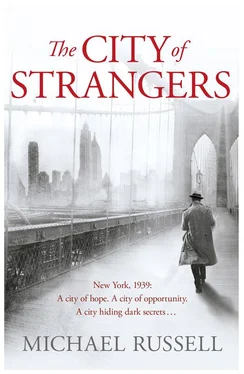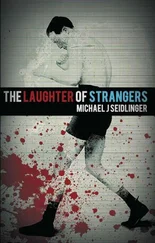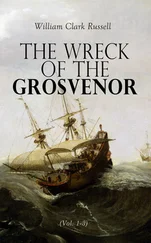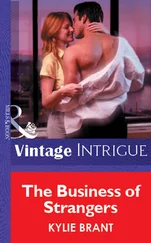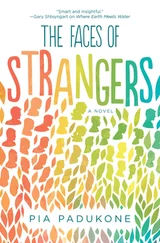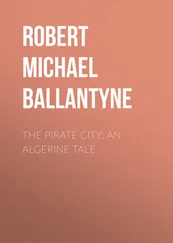The man he was waiting for had docked at Pier 17 on the Hudson River two hours earlier. There were piers by Fulton Market too, but there were no grand Atlantic liners there, only the fishing boats from Long Island and New England, and the ferries to Brooklyn. Donal Redmond’s ship was the French Line’s SS Normandie ; he was a steward. He would have picked up the message he was delivering, as he always did, when the boat stopped at Cobh on its way from Le Havre to New York. And before the delivery was made at the other end he would give it to John Cavendish to copy.
‘You’re late.’
‘I’m here, what else do you want?’
‘You’d be better off out of the White Horse every time you dock.’
‘If I didn’t have a few in there, they’d think something was up.’
‘You’ve had more than a few.’
‘I’ve been on that boat six fucking days. What do you care?’
‘I don’t,’ said Cavendish, getting up off the stool. ‘Have you got it?’
Donal Redmond nodded. He followed the army officer through the maze of stalls, out to the back of the market, where the boxes of fish were loading and unloading. Trucks and cars, horses and carts, barrows and forklifts were everywhere. Money was changing hands outside as it was in, and arguments were still going on about prices that had started at the stalls and carried on out to the street; hands were spat on and shaken; illegible dockets and receipts were scrawled out and dropped into the slush of ice and blood and litter.
John Cavendish sat with the steward in the front of his red and white Crossley. In all the noise and the constant movement of vehicles a man scribbling something down in the front of a car looked like any other wholesaler or restaurateur totting up his bill.
The two letters, on thin copy-paper flimsies, had been rolled up tightly into straws and buried in a tin of Jacob’s shortbread biscuits. On each of the two pages were several paragraphs of typed capital letters; the letters grouped in neat columns, each five letters wide, with a space between each group. Cavendish copied both pages, laying the letters out exactly as in the typed originals. He rolled up the pages as tightly as they had emerged from the tin, then twisted the top and bottom of each one. The other man pushed them back under the biscuits, pressed the lid down tightly, and turned to stuff the tin into the duffel bag that was now on the back seat of the captain’s car.
‘Do you want a lift over to Queens?’
‘OK. Suits me.’
John Cavendish took five ten dollar bills from his wallet and handed them over. The steward put them in his pocket and grinned. It was done.
‘Merci, mon brave. Quelque chose à boire?’
Cavendish reached under the dashboard and pulled out a silver and leather hip flask. As he started the engine he handed it to Donal Redmond. He drove from Front Street on to Fulton Street, past City Hall and up on to the Brooklyn Bridge, over the East River to Long Island. He drove through Brooklyn into Queens. Redmond said nothing now; their business was over. Two blocks from the call house in Woodside, at the corner of 58 thStreet and 37 thAvenue, where the ciphers would be delivered, the army officer stopped the car. The steward got out, hauled his duffel bag from the back seat and walked away.
As he disappeared from sight Cavendish reached for the hip flask and drank the remaining whiskey; as he put his hands back on the steering wheel he realised they were shaking. He pulled out into the road. A horn blasted angrily. The Irishman smiled to himself and tutted, ‘Cavendish, Cavendish!’ He drove on. He’d said he’d meet her an hour ago. He was heading for La Guardia now, for the Triborough Bridge, and then Harlem.
It was one o’clock in the morning in Small’s Paradise on 7 thAvenue and 135 th. It was hot, however cold it was outside. The downtown whites with the appetite for it had left the restaurants and bars of Lower Manhattan to join the black crowds in Harlem now, where the music was always louder but more importantly always better, much better, and you could dance with a woman in ways that would have got you thrown out of the Rainbow Room for even thinking about. The mix of black and white customers was a natural thing in Small’s; it was natural enough that nobody thought very much about it; Ed Small was black after all. There were white-owned, Jim Crow Harlem clubs, like the Cotton Club, where only the waiters and the musicians were black. But there were black clubs and black clubs of course; Small’s Paradise was just about as black as Manhattan’s more adventurous white downtowners and midtowners could comfortably cope with.
John Cavendish was happy enough to be there for the music, which he had grown to love during his months in New York. He’d heard a lot of it now and he never tired of hearing more. It was like nothing he’d known, and whatever he’d heard before, on records or the radio, was only the palest reflection of what it felt like to be in a room with it. He was easy there; he would have been happy just to listen.
The Irish woman he was with, Kate O’Donnell, was maybe thirty, tall, with blue eyes that had the habit of always looking slightly puzzled. Her hair was cut just above her shoulders, blonde enough not to need bleaching, and with enough curl not to need perming; sometimes she even brushed it, but not so often that it looked brushed. She was dressed well, but if you’d asked her what she had on, she would have had to check. She wasn’t easy sitting there. There was an edge of anxiety about her. She needed one of the trumpeters in the band with her when she talked to John Cavendish tonight.
If the captain was going to help her, she wanted him to help her now. She had started to feel he was putting it on the long finger. They needed to talk harder again; the captain, her, the trumpeter; they needed to move.
But talking to the trumpeter wasn’t the only reason they were there at Small’s Paradise. It was safe, safer than anywhere else. Harlem was the right side of Central Park, that’s to say the wrong side; it was nobody’s territory, at least nobody she knew, nobody who mattered.
The black trumpeter was playing now, standing up for a short, final solo as the band came to the end of ‘Caravan’. Cavendish knew it; he’d been at Small’s once before when Duke Ellington was playing. He liked swing; it was the sound he heard everywhere in New York. But the man at the piano, with the immaculately slicked hair and the faintest pencil-line moustache, went further than swing. What he played wasn’t just music, it was the city itself; it was as delicate and ephemeral as it was hard and sharp and solid. The piano was the night air in Central Park one moment and a subway train the next. As the trumpeter sat down to a scattering of applause, the piano and the brushed cymbals took over. Cavendish took an envelope from his pocket and pushed it across the table to Kate. The music was louder again now as the band played the last, almost harmonious chord, and the whole club focused on Ellington and his musicians, clapping and shouting.
‘That’s the passport I promised,’ said Cavendish. ‘Two. If she needs to travel under another name, there’s not much point you travelling under yours. It’s unlikely she’ll want it going into Canada, but with what’s going on at the moment you don’t need a problem.’
Kate picked up her handbag and put the envelope in it.
‘My problem right now is she’s still there, locked up in that place.’
The set had finished now, and the fading applause followed Ellington and his band off the stage. Another musician made his way to the piano and started to play, more quietly. Dancers drifted off the floor; the volume of conversation grew; trays of food and drink were coming at greater speed.
Читать дальше
